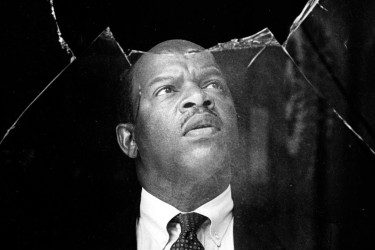The latest is “King: A Life” (Farrar, Straus & Giroux), by Jonathan Eig, whose previous book was a biography of Muhammad Ali. Eig wants to give readers an alternative to the “defanged” version of King that endures in inspirational quotes. Eig’s new sources include the latest batch of files released by the F.B.I., which was surveilling King even more closely than he suspected; notes from Reddick; and remembrances from King’s widow, Coretta Scott King, who recorded her thoughts in the time after his killing. “The portrait that emerges here may trouble some people,” Eig writes—the book recounts a number of King’s affairs, as well as the allegation, from an F.B.I. report, that King was complicit in a sexual assault.
What Eig mostly provides, though, is a sober and intimate portrait of King’s short life, and one that can’t help but be admiring, given how much King accomplished, and how quickly he did so—he was thirty-nine when he was killed. Eig captures the ferocity of the forces that opposed King: dogs, bombs, Klansmen, and, above all, segregationists wielding legal and political authority. He also captures King’s sense of theatre, his enormously canny ability to stage confrontations that heightened the contrast between the civil-rights movement and the people who wanted to stop it. King viewed nonviolent protest as both a moral imperative and a political winner, because it made protesters look good and segregationists look bad. This sense of how things would play on newspaper front pages and television screens, this exacting attention to appearances, marked King as a distinctly contemporary activist—a master of the viral moment. It also marked him as an unapologetic practitioner of what’s now known as “respectability politics”: the idea that a group is more likely to be treated with respect if its members behave respectably. Unlike King himself, respectability politics does not have a great reputation; the term is used primarily by critics of it who worry that this approach tends to “rationalize racism, sexism, bigotry, hate, and violence,” in the words of one NPR report. This is the most paradoxical aspect of King’s long, glorious afterlife: fifty-five years after his death, he is almost universally respected, but his lifelong devotion to the politics of respectability is not.



































